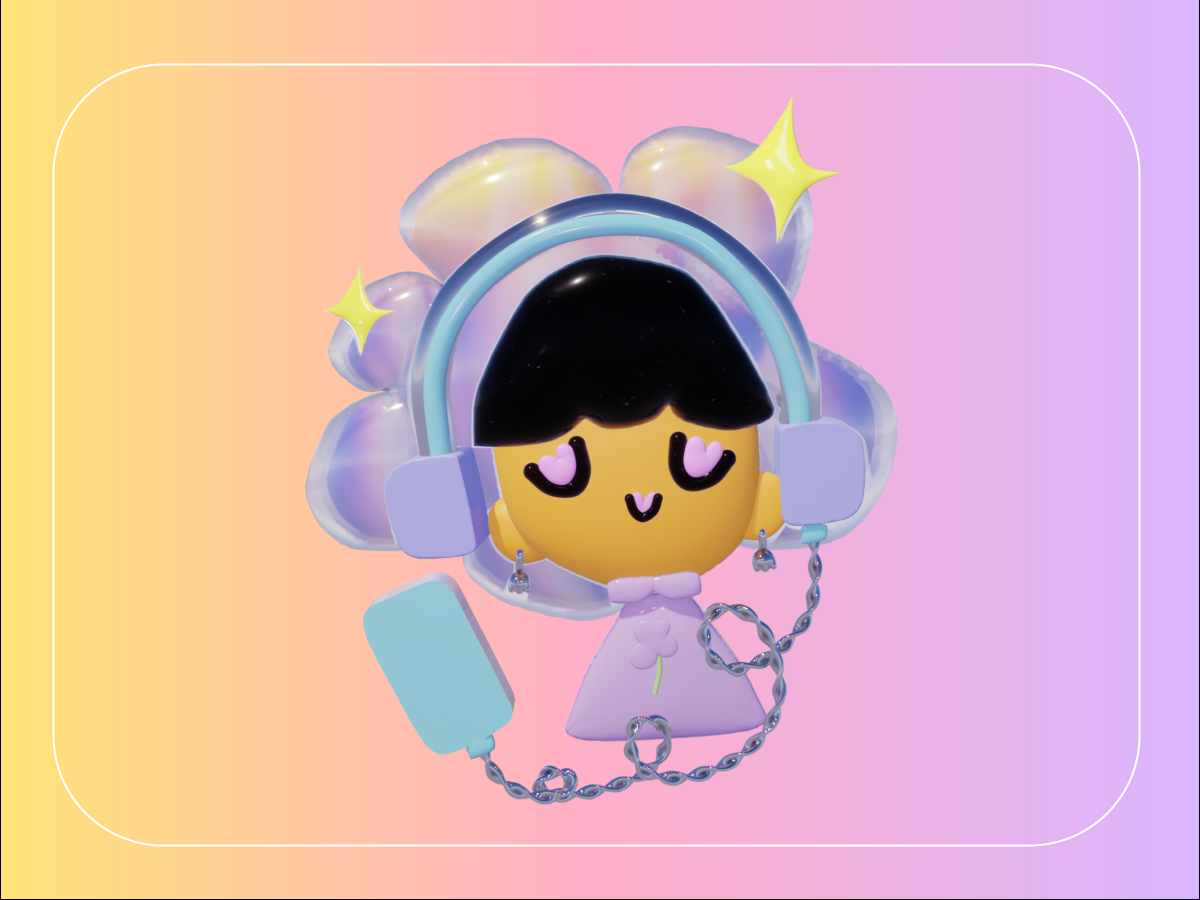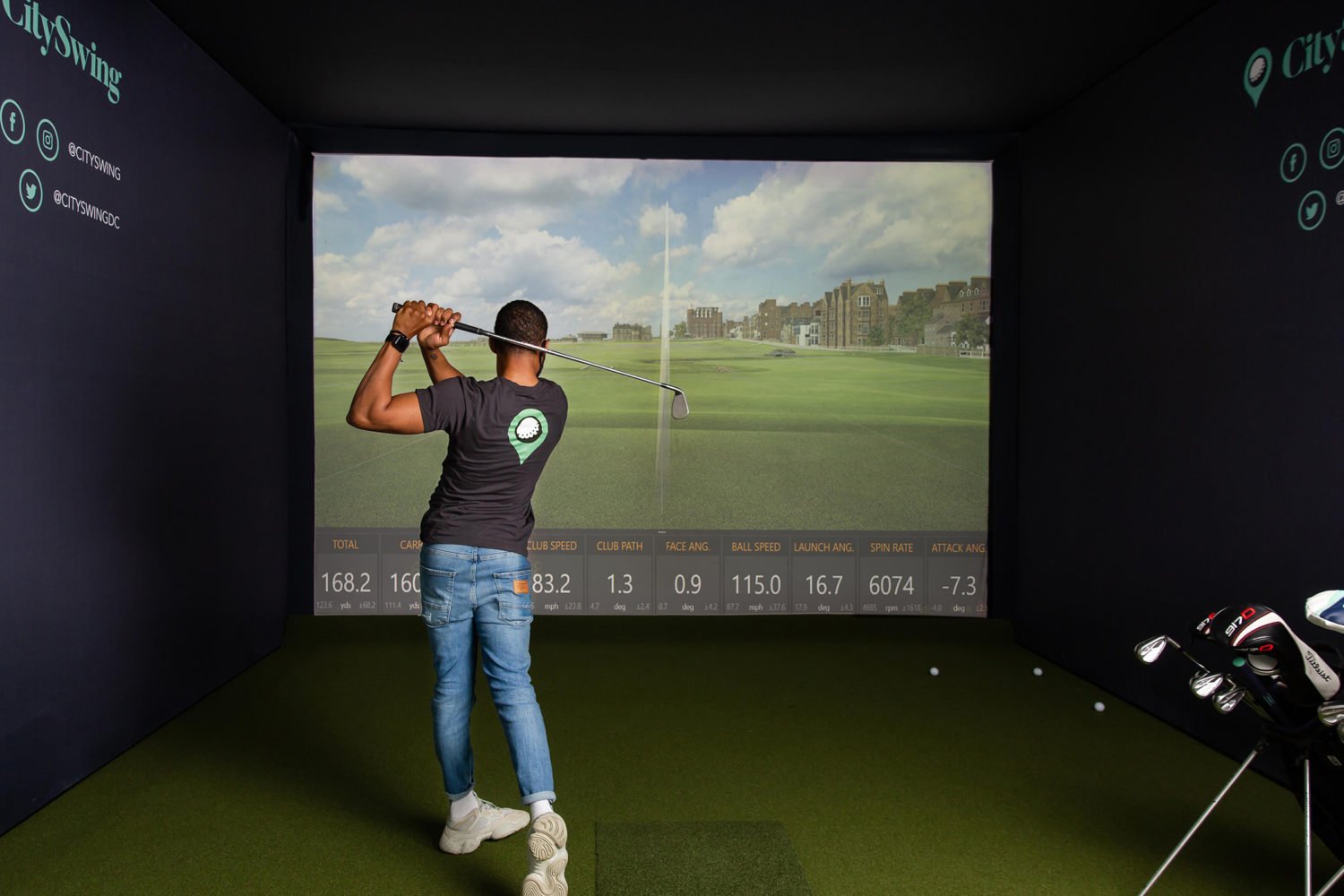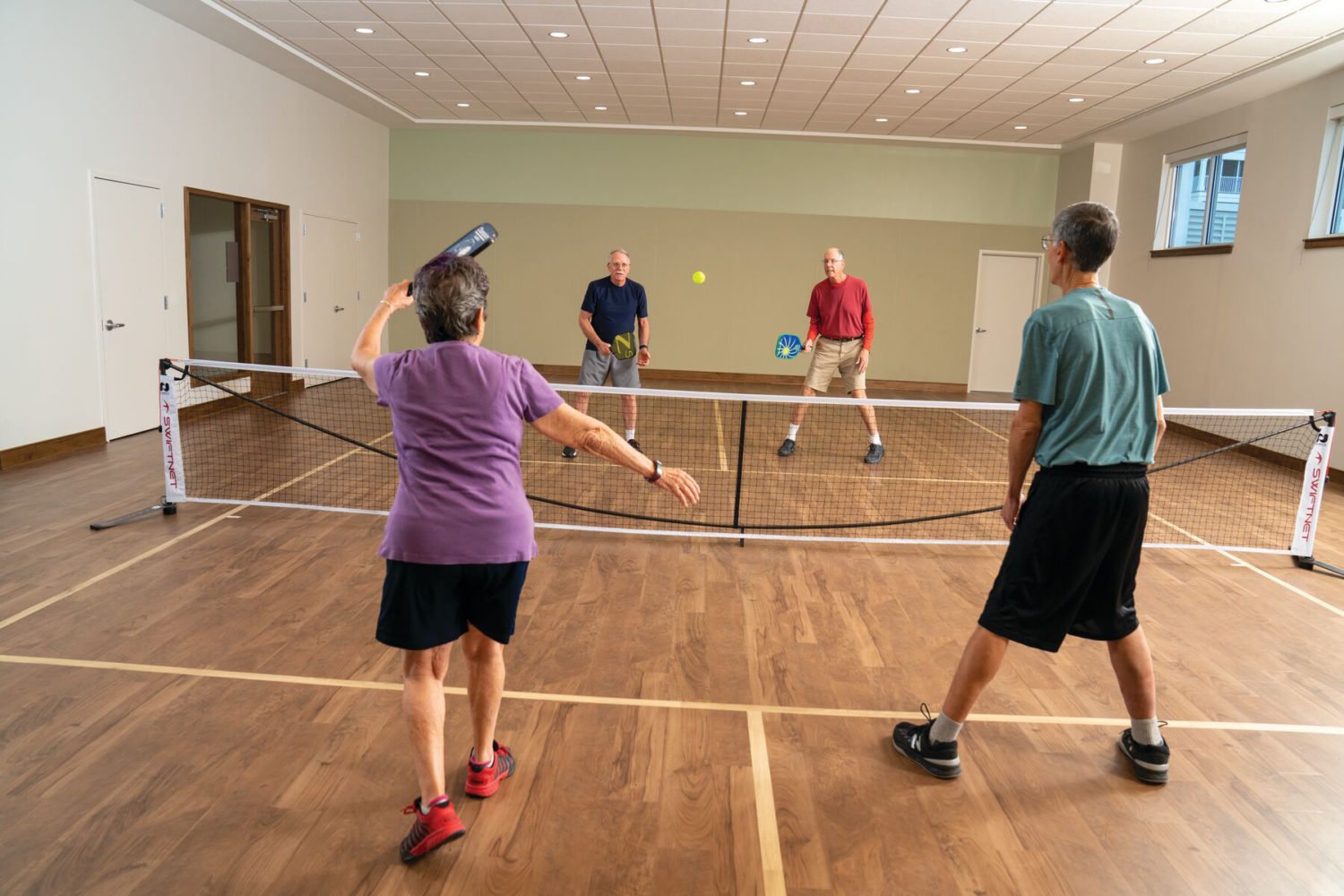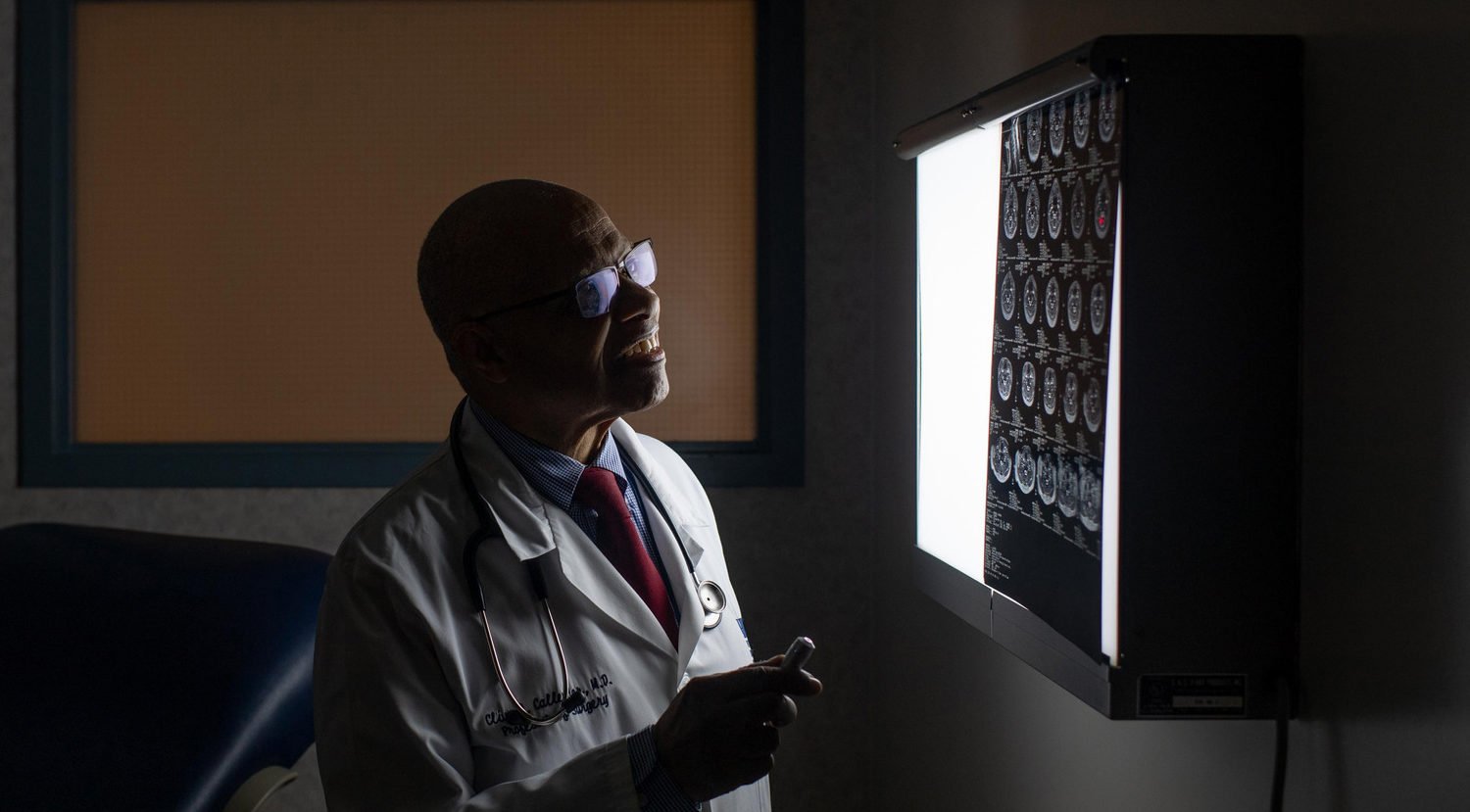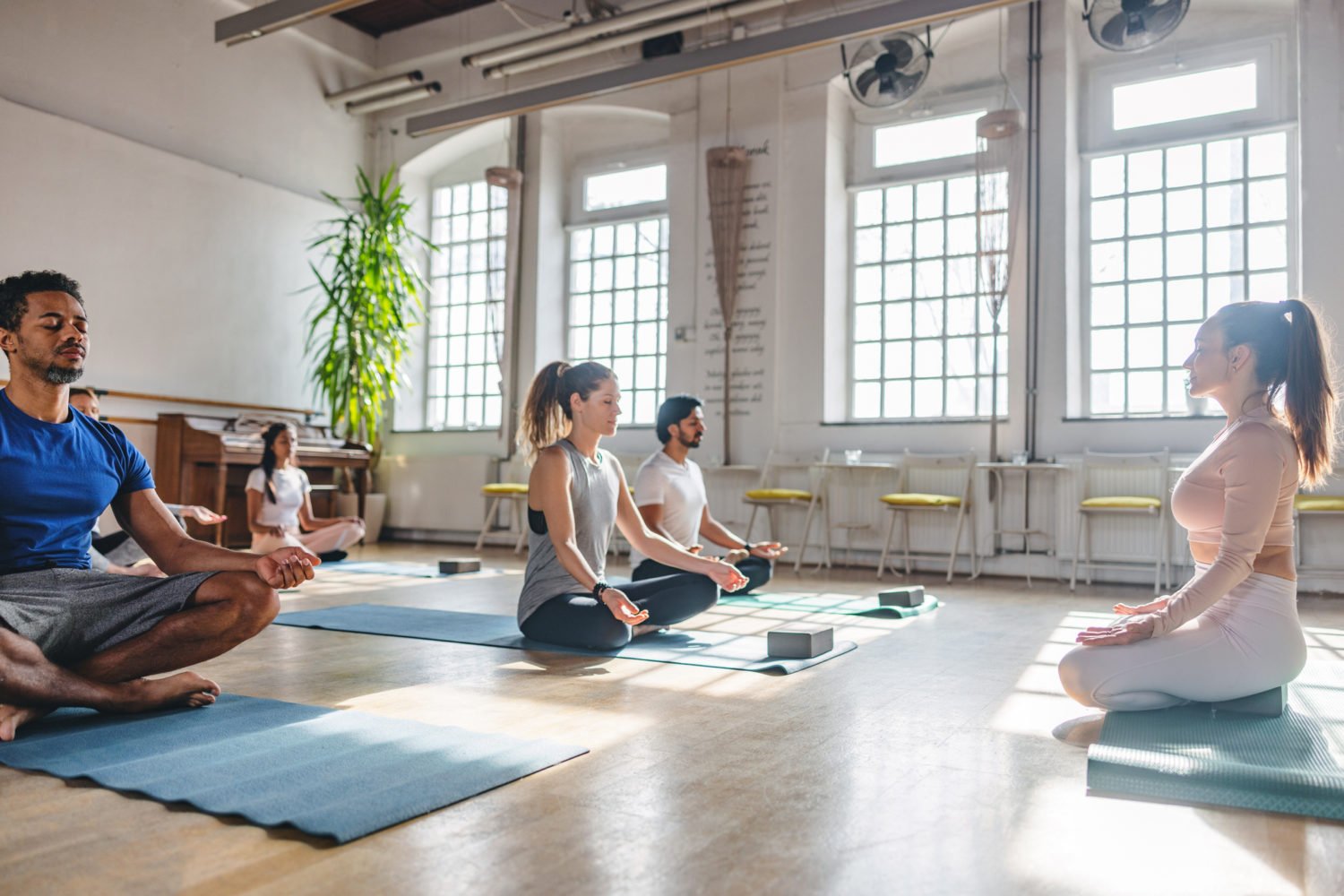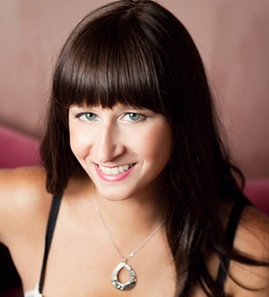
Kristy Penzone enjoys the life of any normal thirtysomething woman living in Washington. There’s the occasional jaunt out to a bar in her Dupont Circle neighborhood with friends, or a relaxing day of reading a good book on the couch, or time spent getting settled in her new job as Hilton Worldwide’s eCommerce Marketing Manager. Just one glance at Penzone and you’d never notice what’s hiding beneath her long brown hair.
In reality, a well-styled wig covers up a portacath, a medical device implanted into her chest through which she receives chemotherapy treatment. You wouldn’t know it looking at her, but Penzone has stage IIB breast cancer.
This past February, Penzone began noticing a pain in her right breast when she’d lie down. One day, she found a lump.
“Something wasn’t right,” she says. “When I felt my other breast, it was very different.”
Her doctor initially dismissed the lump as fibroids, but recommended a second opinion with breast specialists at George Washington University. After a series of tests—ultrasound, mammogram, and biopsy—she was asked to come into the office.
“I knew it was bad because, if it’s good news, they just tell you over the phone,” Penzone says. “I went in, and that’s when they told me that I had breast cancer.”
Penzone doesn’t have a family history of breast cancer—though her mother passed away from leukemia earlier this year—and she tested negative for the BRCA 1 and 2 genes. Rather, she has HER2 positive breast cancer, which is characterized by an aggressive tumor fueled by an overexpression of the human epidermal growth factor receptor 2 gene. By the time she was diagnosed, the cancer in her breast had spread to the axillary lymph nodes in her armpit, and her tumor was more than two centimeters.
There is hope, but Penzone still has a lot to overcome. With Herceptin treatment, a drug used with chemotherapy, the odds are slightly in Penzone’s favor. Currently, the five-year-survival rate for HER2 positive breast cancer is roughly 80 percent. It seems relatively high, but HER2 positive breast cancer has a high rate of local and distant recurrence, which means that even after she’s in remission, there’s a good chance the cancer could come back in her breast or in other parts of her body.
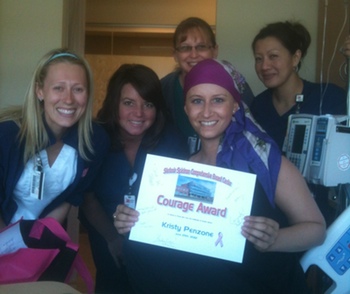
In addition to her medical odds, Penzone faces some personal challenges. She’s single, and, between the portacath in her chest and her recent mastectomy, she worries “whether a man’s going to find me sexy. It’s scary-looking, and it takes someone really good to date someone who’s facing death.”
There’s also the issue of community. Whereas an older woman might have a husband, a family, and lots of resources and support systems, a single woman living on her own in a city often doesn’t have that foundation. Penzone’s had to rely on her friends for help and, though they have been overwhelmingly supportive of her, she has at times felt isolated by her condition. “Sometimes they feel like they don’t want to bother me, but I’m sitting there like, ‘I want to be bothered! I want to be involved!’”
Currently, Penzone is in the middle of radiation treatment to prevent recurrence of the cancer in her breast, but her attitude is that she doesn’t want to be defined by the disease. “I just want to feel as much myself as possible,” she says. “I wore a scarf out once, and people were looking at me like ‘Oh, there’s something wrong with her.’ It was awkward. I’d rather blend in and live my life without everyone knowing that I’m sick.”
Though sometimes she cries and wonders about her own mortality, she’s managed to stay positive on the whole. Writing about her experience on her blog has been therapeutic. To help with the cost of her treatment, which has put her into fairly heavy debt, her friends set up a donation page online. Penzone says it has been humbling to see how much people care—even complete strangers.
And her advice for all women out there? “Get familiar with your boobs! Everyone’s boobs are different, so you have to know your own. If you feel anything change, get it checked. Get a second opinion. Just always, always get it checked.”
Be sure to check back with Well+Being each week for profiles on breast cancer patients and survivors in honor of National Breast Cancer Awareness Month.




